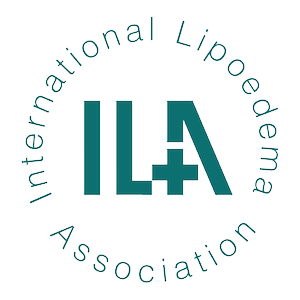Linda Hodgkins, MS, OTR/L, CLT-LANA delivered the Keynote Presentation for Klose Conference 2019. Linda believes going back to the basics of Complete Decongestive Therapy (CDT) will dramatically improve patient outcomes and facilitate program growth. Linda’s 20 years of providing CDT in various settings and with various treatment protocols has led her to the exciting discovery that the key to successful care for patients with lymphedema and for program growth is the implementation and standardization of the core pillars of traditional CDT.
Objectives
- Identify the pillars of CDT that support successful patient outcomes.
- Explain the correlation between high-quality complete decongestive therapy (CDT) and increased referrals and program growth.
- Identify specific steps to effectively implement the pillars of CDT system-wide within a private practice or hospital-based lymphedema clinic.
References
Bramblette S, et al. (2018). U.S. Medical Compression Consensus Document. Lymphedema Advocacy Group.
Cate-Hoek, A. (2018). Prevention and treatment of post-thrombotic syndrome. Research & Practice in Thrombosis & Haemoststasis, 1-11.
Costopoulos, S., & al., e. (2017). Lower Limb Morel-Lavallee Lesion Treated With Short-Stretch Compression Bandaging. The American Journal of Orthopedics, E213-E218.
D. Ko, D. S. (1998). Effective Treatment of Lymphedema of the Extremities. Archives Surgery, 452-458.
Farrow, W. (2010). Phlebolymphedema- A Common underdiagnosed and undertreated problem in the wound care clinic. The Journal of the American College of Certified Wound Specialists, 14-23.
K. Polo, e. a. (2017). National Survey of Lymphedema Therapists’ Dosing of Complete Decongestive Therapy in Breast Cancer Survivors with Lymphedema. Journal of Allied Health Sciences and Practice, 16(1-5).
Mehrara, B., & Greene, A. (2014). Lymphedema and Obesity: Is There a Link? Plastic reconstruction Surgery, 154-160.
Oever, V. D. (1998). Socio-Economic impact of chronic venous insufficiency. An underestimated public health problem. Int Angiol., 161-7.
Palacios, F., & Rathbun, S. (2017). Medical Treatment for Postthrombotic. Seminars in Interventional Radiology, 61-67.
Rohner-Spengler, M. (2014). Effective Treatment of Posttraumatic and Postoperative Edema in Patients with Ankle and Hindfoot Fractures. the Jouranl of Bone and Joint Surgery, 1263-1271.
Whatley, J. (2017). Effect of Lymphedema Treatment for Management of Acute Pilon Fractures. Orthopedics, e668-e674.
About the Presenter
 Linda Hodgkins earned her Master of Science degree in Occupational Therapy from Springfield College (Massachusetts) in 1996. She was trained in lymphedema therapy by Leduc in 1998 and then completed her CLT certification through the Norton School in 2004. In 2006, Linda became certified with the Lymphology Association of North America (LANA).
Linda Hodgkins earned her Master of Science degree in Occupational Therapy from Springfield College (Massachusetts) in 1996. She was trained in lymphedema therapy by Leduc in 1998 and then completed her CLT certification through the Norton School in 2004. In 2006, Linda became certified with the Lymphology Association of North America (LANA).
In 1998, Linda began practicing as a lymphedema therapist at Gaylord Rehabilitation Hospital in Wallingford, Connecticut. In 2004, prompted by the desire to provide patients with a more comprehensive version of CDT in a relaxed setting devoted exclusively to lymphedema management, Linda opened a private practice, Therapeia Lymphedema Center. Over the next eleven years, Therapeia grew by word of mouth to a practice of over 1000 patients by gaining a reputation for effective care in the greater New Haven, CT area. During this time, Linda also co-founded the Connecticut Consortium of Lymphedema Providers. The consortium is devoted to promoting excellence in the field amongst over 140 Connecticut-based lymphedema care provider-members through quarterly meetings, peer-support, guest lectures, and vendor presentations.
Hartford HealthCare acquired Therapeia in 2016, at which time Linda became employed at the company as both practicing therapist and Lymphedema Program Director. Linda has since been promoted to Lymphedema Clinical Program Manager, charged with standardizing all of Hartford HealthCare’s lymphedema services statewide to the standard of care for complete decongestive therapy.
Linda’s other professional activities have included serving as adjunct professor for the Quinnipiac University Occupational Therapy Department and serving on the Boards of Directors for Solaris (L&R), the Circle of Hope Lymphedema Foundation, and the Brace for L.I.F.E. Foundation.
Linda has interest in research and has presented at the National Lymphedema Network (NLN) Conference. In 2012, Linda was selected to present the findings of a pilot study that she participated in with Quinnipiac University regarding the effectiveness of using SpiderTech Kinesiotape during the self-care phase of lymphedema management. In 2014, she presented the results of her survey of the lymphedema programs offered by the top cancer centers in the United States. Most recently, Linda was honored to contribute a G-Code calculator to compliment the Lymphedema Life Impact Scale (LLIS) developed and published by Jan Weiss, DPT.





Leave a Reply